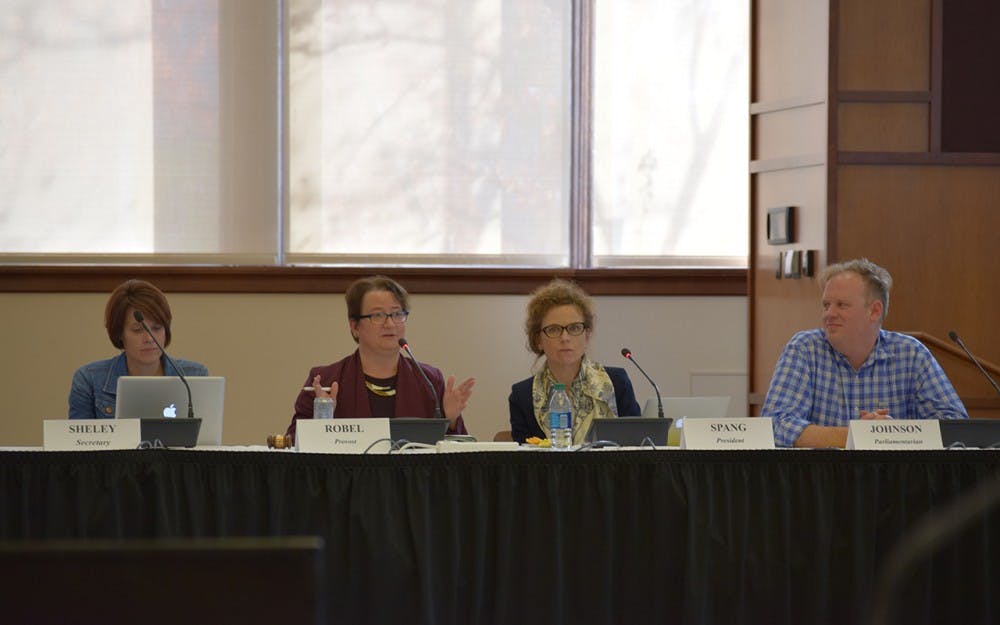The Bloomington Faculty Council delayed a decision to update its diversity policy and potentially make IU a sanctuary campus Tuesday afternoon.
These efforts will be revisited in January.
“We were hoping if the diversity statement passed we could amend that to protect students that are under attack,” said Maisha Wester, associate professor in the Department of American Studies and African American and Diaspora Studies.
After Donald Trump’s election to the presidency, undocumented students and those registered under the Deferred Action for Childhood Arrivals policy, which provides temporary legal status to previously undocumented people, have become concerned about deportation.
Some people have rallied for IU to become a sanctuary campus, which means the University would pledge to protect students from deportation while on campus.
Members and supporters of the UndocuHoosier Alliance, which advocates for undocumented students on campus, have rallied multiple times.
Last week they conducted a silent demonstration at the Board of Trustees’ meeting to make IU a sanctuary campus.
At the end of discussion of the diversity statement, Wester mentioned a possible amendment to the diversity policy that would pledge IU’s commitment not to assist law enforcement with deportation efforts.
A more in-depth resolution on the issue might be presented in the future, Wester said.
Wester said she mostly wants to get some sort of commitment from the University on the record about supporting undocumented students before Trump assumes the presidency in January.
She said she worried the council may deliberate on the issue beyond Jan. 20, when Trump will be sworn in.
“Come inauguration, it’s about to get real,” Wester said.
Students attended the meeting with hopes of speaking to the council about making IU a sanctuary campus, but they were not allowed to speak during the meeting due to the council’s bylaws.
[SASV makes demands to Trustees | IDS]
Provost Lauren Robel mentioned the agenda Tuesday afternoon was too full to include more topics but offered to speak with leaders of the students about how to get onto the agenda for the next BFC meeting.
Earlier in the meeting, the council had discussed an update to the University’s diversity policy that mandated the community welcome all types of people.
This nondiscrimination policy extends to everyone, regardless of factors such as citizenship, ethnicity, religion, national origin or ancestry.
The policy also states one of IU’s goals as an institution is to teach students how to include who experience discrimination and underrepresentation and to learn how to respect one another’s differences.
Mathematics professor Elizabeth Housworth proposed making more amendments to the diversity policy during the meeting to ban discrimination against people based on their criminal record, family responsibilities or points of view.
Micol Seigel, associate professor of American studies, said during the meeting she researches the criminal justice system, and she urged councilors to reconsider their biases toward convicted criminals, especially because research she presented at the meeting points to bias in the system against racial minorities.
“Our current criminal justice system is grossly unjust,” Seigel said. “Our current incarceration is not about crime. It’s about politics.”
Nyssa Kruse contributed reporting to this story




